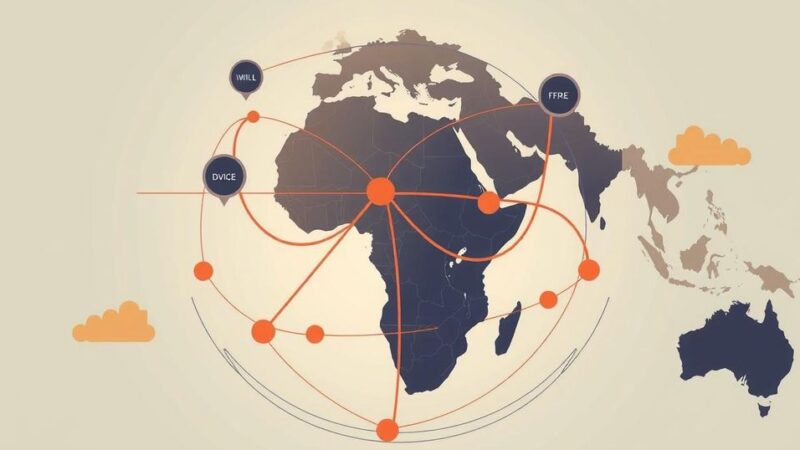The U.S. is reportedly planning to relocate Gazans to Somaliland, Puntland, and Morocco as part of President Trump’s vision for revitalizing Gaza. The initiative has faced significant backlash from Palestinian leaders and regional powers who reject the idea of displacing residents. Despite the opposition, the plan aims to foster infrastructure development and economic opportunities in Gaza.
The White House is reportedly making plans to relocate Palestinian residents from Gaza to regions in Somaliland, Puntland, and Morocco. These discussions have emerged following President Trump’s remarks about transforming Gaza into a desirable area, potentially under U.S. reconstruction efforts. This initiative seeks to resettle Gaza’s approximately two million inhabitants while revitalizing the territory with extensive infrastructure enhancements, purportedly under U.S. supervision.
President Trump historically characterized Gaza as a “demolition site” during a meeting with Israeli Prime Minister Benjamin Netanyahu, advocating for substantial changes in the area. This relocation concept has encountered strong backlash from multiple stakeholders in the Middle East, highlighting the complexity of the geopolitical environment. Despite its focus on reconstruction rather than annexation, apprehensions persist about the long-term implications of such a plan.
The proposed plan aims to attract foreign investment and bolster infrastructure, with Trump envisioning Gaza evolving into the “Riviera of the Middle East.” Internal sources suggest that these remarks were designed to spur negotiations on the release of prisoners and extend ceasefire agreements, although the repercussions regarding Hamas’s potential response remain a significant concern.
Regions like Somaliland and Puntland, both striving for greater international recognition, as well as Morocco, which is dealing with ongoing disputes over Western Sahara, have emerged as prospective relocation sites. These areas, characterized by a majority Sunni Muslim population, seek U.S. support and are evaluating the feasibility of accommodating displaced residents of Gaza.
Nevertheless, the idea has drawn intense criticism from Palestinian leaders, who assert that these plans infringe upon international law and undermine Palestinian sovereignty. Local residents like Hatem Azzam have voiced strong disdain for the proposal, insisting that Gaza is their home and expressing their unwillingness to abandon it.
Moreover, influential regional powers, including Saudi Arabia, Egypt, and Jordan, have publicly rejected the relocation initiative, reinforcing their support for a two-state solution and the principle that Palestinians should not be forcibly uprooted from their homeland. Despite these widespread condemnations, U.S. officials reportedly continue to contemplate the proposal as a potential avenue to rejuvenate Gaza’s economy and improve living conditions.
The proposal to relocate Gazans stems from President Trump’s vision to transform Gaza into a more prosperous region, amidst ongoing discussions about its reconstruction. The notion of resettling Gazan residents has been introduced as a radical approach to address the besieged area’s crisis, seeking to establish new opportunities for residents while also tackling longstanding disputes within the geopolitical landscape of the Middle East. This concept has sparked a significant mix of support from local areas facing their own challenges, as well as strong resistance from Palestinian leadership and other regional powers committed to the Palestinian cause.
In summary, the U.S. government’s intention to relocate Palestinian residents from Gaza to Somaliland, Puntland, and Morocco has instigated considerable debate and controversy. Although framed as a plan for reconstruction and revitalization, it has been met with widespread dissent from Palestinian leaders and regional allies. The proposal underscores the complexities of the Israeli-Palestinian conflict and raises questions regarding sovereignty and the future of Gaza’s inhabitants.
Original Source: www.defensemirror.com






